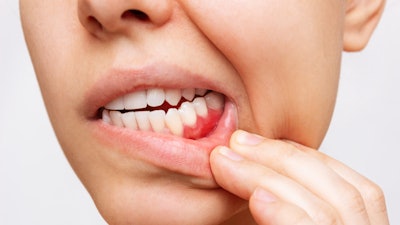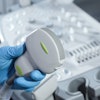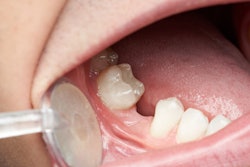
Rinsing with chlorhexidine and using interdental brushes regularly may be an effective, at-home way for patients with diabetes being treated for periodontitis to control gum disease at home, according to University of Buffalo (UB) researchers.
Periodontitis patients with diabetes who used the mouth rinse showed a significantly greater reduction in periodontal inflammation compared to those with diabetes who kept up with a general oral care routine, according to a university press release.
“We’re not sure why exactly, but we suspect it’s because people with diabetes have a weakened healing response,” Dr. Patricia Diaz, PhD, the director of UB’s Microbiome Center, said in a university press release. “This oral care regimen removed oral bacteria and allowed better healing.”
To ascertain the effects of an intensive chemical and mechanical antiplaque regimen used at home in addition to scaling and root planing (SRP), in the treatment of moderate to severe periodontitis, 114 patients were divided into two groups for a six-month trial. One group underwent SRP and were told to use a chlorhexidine gluconate mouth rinse twice a day for three months along with rubber interproximal bristle cleaners twice a day for six months. The other group received SRP and were given general oral hygiene instructions.
Though patients with diabetes experienced less periodontal inflammation while using chlorhexidine and cleaning with interdental brushes, those without diabetes saw no benefits from these measures, according to the study, which was funded by a grant from oral healthcare company Sunstar.
However, there are side effects, including teeth staining and taste disturbances, associated with the use of chlorhexidine for extended periods. In this study, patients experienced changes in their sense of taste after three months, but the side effect dissipated after they discontinued using the mouth rinse. Additionally, any staining caused by chlorhexidine use was resolved with supragingival scaling, according to the release.
Nevertheless, Diaz is pursuing further study of the microbiome and how it affects diabetes.
“We need more definitive answers,” Diaz said. “Current studies are evaluating what manner this oral care routine modified the oral microbiome to allow for better healing.”




















